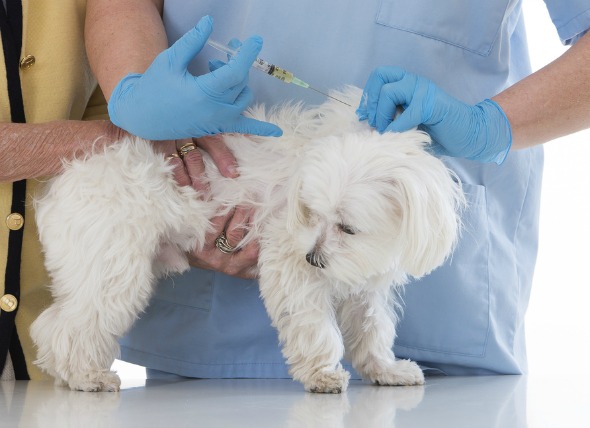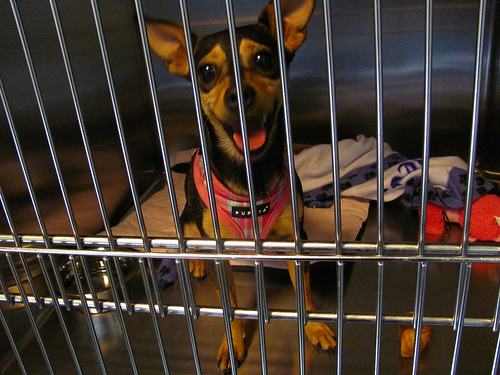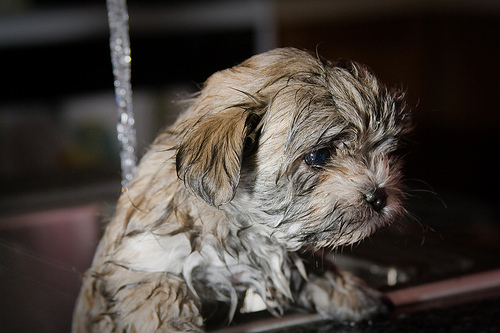

By T. J. Dunn, Jr., DVM
Among pet caretakers few topics are more debated than that regarding the vaccination of dogs (and cats). In years past, vaccinations for all sorts of diseases were recommended to be given annually ... year after year. That protocol was followed by veterinarians because they were told to do so by the vaccine manufacturers in order to ensure optimal immunity for as many pets as possible.
If a veterinarian independently decided not to follow the label recommendations on the vaccines, and an animal subsequently developed a disease that the veterinarian decided vaccination for wasn't needed, the veterinarian was vulnerable to being sued. Ethically and legally the veterinarian must follow label recommendations for the administration of biologicals.
In recent years, the vaccine manufacturers have been under some pressure to show data that truly demonstrates a need for annual vaccinations for dogs (and cats). Part of the drive for reconsideration of vaccine protocols has been coming from Holistic veterinary practitioners, many of whom believe that repeated vaccinations diminish the animal's immune resources and can actually create disorders such as degenerative joint diseases, immune mediated disorders such as Lupus, and can actually depress the animal's ability to ward off diseases "naturally". A few holistic veterinarians believe that all vaccines are harmful.
On the other hand, there are veterinarians -- from general practitioners to research scientists with advanced degrees in immunology -- who contend that vaccinations are a modern marvel, responsible for saving uncountable animal lives ... just as vaccines have helped rid the world of savage human diseases such as smallpox and polio.
So how is today's dog and cat caretaker going to make an informed decision about their own pet's vaccine needs?
I will share a recent email I received from a pet caretaker expressing just such a dilemma ...
Dear Dr. Dunn,
I was wondering if you would share with me your opinion about yearly shot or shots for my Yorkie. He will be one year old soon and has had all his shots to date. I read on a Yorkie site the opinions of three Veterinarians who expressed that dogs only need shots two or three times in their entire life.
Thank you for your help with this question. N. H.
The problem is this: Most dogs will hold protective immunity longer than a year when given vaccines (but there are variables). So when a veterinarian sees a dog in practice and the owner asks "Does my dog need that Distemper or Parvo vaccine this year?" the veterinarian has no way of knowing what the dog's immune status is for those diseases. You and the doctor can only guess.
What if you skip a few years and in fact the dog's immune status is low and actually contracts the disease? You would be pretty upset that the veterinarian said "The dog didn't need a vaccine this year." You might even be able to sue the doctor for suggesting that the dog "didn't need a vaccine this year" without having any proof for the veracity of that statement. The veterinarian can only guess what the dog or cat's immune status is.
Some holistic veterinarians think all vaccinations are actually harmful and destructive (and ignore the fact that diseases such as smallpox and polio are almost non-existent today due solely to the use of vaccines to protect the population from the diseases). My personal belief is that we may not need to vaccinate dogs and cats yearly for a number of diseases.
Conversely, if the goal is protective levels of immunity, maybe we should vaccinate more often than once a year for some others (such as Kennel Cough).
But since I have no way to know which individual dogs/cats do need protection and what individuals do not need additional vaccination, I must take a stand for vaccinating to provide my patient (with the owners' informed consent, of course) with the best level of protection I have available.
And that is just to vaccinate. Through 38 years of managing pet diseases and seeing tens of thousands of patients live well into their teens that have had numerous vaccines almost yearly throughout their entire lives, I am not convinced by experience that vaccinating has a destructive effect on the overwhelming majority of animals.
I am, however, convinced that vaccinating has saved uncountable lives from the ravages of parvovirus and distemper... not to mention potential rabies cases. If a animal has an allergic reaction to a vaccine then obviously, a different approach is needed than to repeat that vaccine.
If I see a very old pet that has very little exposure potential to contagious diseases and that has been vaccinated numerous time throughout its life, I intellectually and experientially have less inclination to revaccinate that animal yearly. But I must assume it has some level of immunity because I have no way of really knowing.
In addition, older pets are known to have less potential to contract parvovirus and distemper. The rabies topic needs to be treated very carefully because any warm blooded animal of any age or health status has potential to contract rabies if exposed. Not to be forgotten, unlike some other animal diseases, rabies is nearly always fatal in humans.
The response above is my personal opinion, based upon 32 years of small animal practice and seven years of college study. My personal, experience-driven practice protocols may be different from another veterinarian's.
So the bottom line for per caretakers is this: In arriving at a decision about vaccinating your dog or cat, get the facts about vaccinations, listen to your veterinarian, then get a few other opinions from other veterinarians. (Remember that any individual could have an adverse reaction to a vaccine. If that does happen, of course it might be risky to revaccinate for that disease and it may be best not to vaccinate for that disease in the future.)
If someone tells you that vaccines cause disease or weaken an animal's immune capabilities, ask to see the data that proves that position. Then you make the call. You are the final authority regarding your pet's health care.
Once you feel you are comfortable with your assessment of the vaccine topic, no one should pressure you into doing something different.
 Snake Bites And Dogs
Venomous Snakes and Dogs
By T.J. Dunn, Jr.
Snake Bites And Dogs
Venomous Snakes and Dogs
By T.J. Dunn, Jr.
 Boarding Your Dog (and Cat)
Courtesy of the American Boarding Kennels
Boarding Your Dog (and Cat)
Courtesy of the American Boarding Kennels
 Herb 'N' Living: Growing a Home Garden for Your Pet
Some animal experts have asserted that pets intuitively eat
Herb 'N' Living: Growing a Home Garden for Your Pet
Some animal experts have asserted that pets intuitively eat
 Is Jack Frost Nipping At Fido's Nose?
How to Keep Your Outdoor Pets Warm in the Winter
Is Jack Frost Nipping At Fido's Nose?
How to Keep Your Outdoor Pets Warm in the Winter
 5 Tips For Bath Time Fun with Your Pets
Whether it be a cat or dog you wish to bat
5 Tips For Bath Time Fun with Your Pets
Whether it be a cat or dog you wish to bat
Copyright © 2005-2016 Pet Information All Rights Reserved
Contact us: www162date@outlook.com